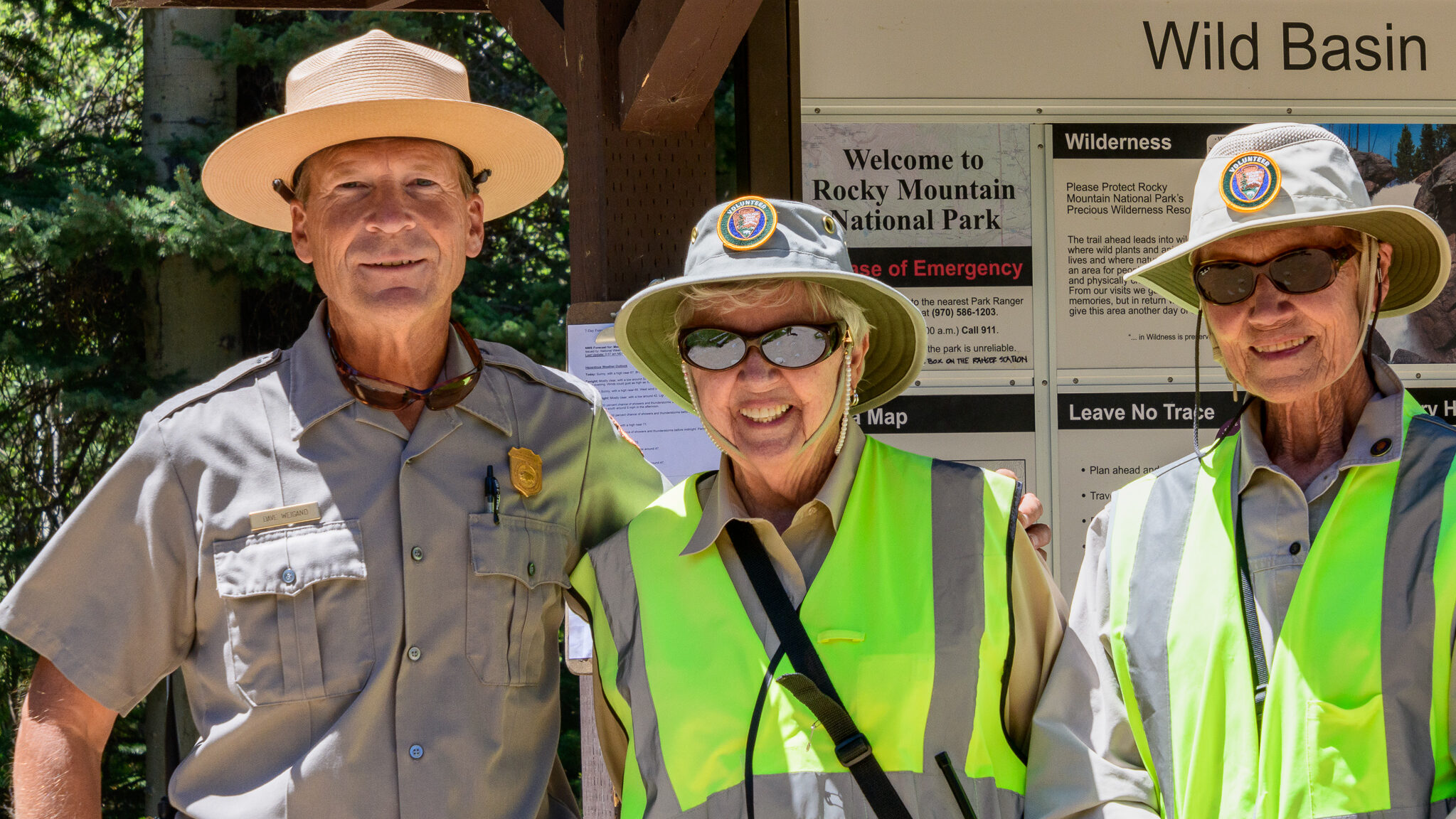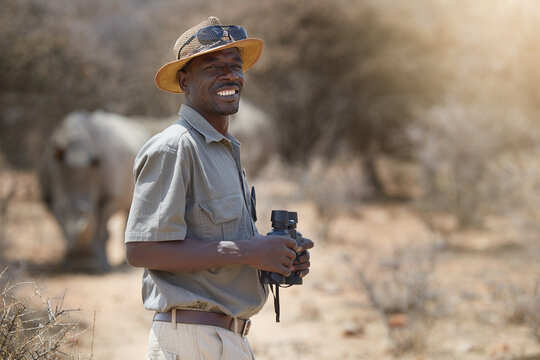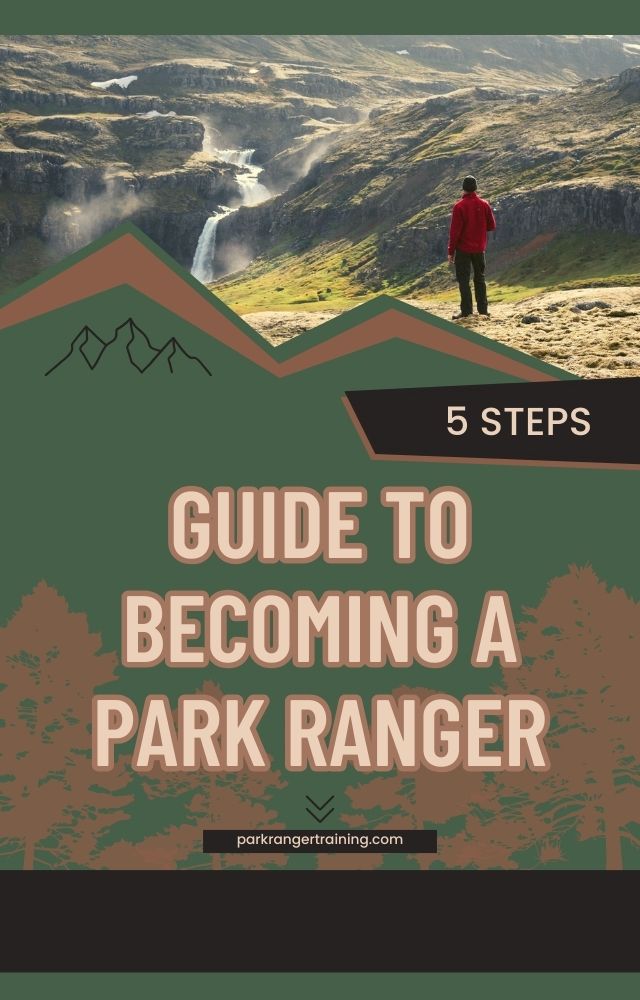If you’re yearning for a career as a steward of the nation’s natural wonders, becoming a natural park ranger is an admirable path. Embarking on this journey requires a commitment to protecting the environment and serving the public. To start, aspiring rangers often need a bachelor’s degree in fields such as environmental science or wildlife management. Educational programs provide a solid foundation, but hands-on experience through volunteer opportunities or internships is invaluable. Not only do these experiences enrich your understanding of natural resource management, but they also bolster your resume.
Next, meeting the blend of physical fitness and civil service standards is crucial. Park rangers are law enforcement officers, responsible for the safety of visitors and the protection of natural resources. Academy training is often a requirement, particularly for those looking to engage in law enforcement within the parks. During this phase, rigorous physical and educational training programs prepare you for the diverse challenges you’ll face in the field. Among these, basic training is essential to develop the skills needed for tours and educational outreach.
Lastly, it’s critical for applicants to possess strong communication and customer service skills, as rangers interact with park visitors daily. As you navigate the federal employment system, keep an eye on opportunities listed on USAJOBS, the federal job portal. Entry-level positions can lead to more permanent roles, allowing you to turn your passion for nature into a rewarding career. Remember, the journey to becoming a natural park ranger is as challenging as it is fulfilling, with each step bringing you closer to safeguarding our natural heritage.
Understanding the Role of a Natural Park Ranger
Delving into the role of a natural park ranger uncovers a multifaceted profession. Rangers are the guardians of our national parks, tasked with preserving the integrity of these treasured landscapes while ensuring a safe and informative experience for visitors. With a comprehensive understanding of the average salary and career trajectory, you’ll be better equipped to decide if this is the right path for you.
Who is a Natural Park Ranger?
A natural park ranger is a dedicated professional who serves as the face of national and state parks. These individuals wear many hats, from environmental educators to emergency responders. Rangers are committed to the conservation of parkland and the enlightenment of the public about the importance of natural preservation and respect for wildlife habitats.
Duties and Responsibilities of a Park Ranger
Park rangers oversee the enforcement of park regulations, conduct search and rescue operations, and manage wildfire containment. They also lead tours and educational programs, providing insights into the park’s history and ecology. Additionally, rangers are instrumental in wildlife management and play a key role in preserving the natural and cultural resources of their park.

Educational Pathways to Becoming a Park Ranger
To become a park ranger, educational pathways vary, but a solid foundation in natural sciences, wildlife management, and criminal justice is beneficial. College degree programs, especially those offering a bachelor’s degree in natural resource management or related fields, are recommended. Individuals interested in becoming park rangers should also consider the diverse opportunities within state parks departments and explore seasonal park positions ideal for college students.
Deciding to Pursue a Career in Park Management
If you’re contemplating a career as a park ranger, it’s essential to understand the commitment and dedication the role demands. Federal employees in park management are entrusted with conserving the beauty and biodiversity of our nation’s parks, requiring a deep-seated passion for nature and a strong desire to serve the public. Weighing these factors will help you determine if this career path aligns with your values and long-term goals.
Essential Academic Qualifications and Studies
Aspiring park rangers should focus on completing essential academic qualifications, particularly if aiming for a position as a state park ranger. The hiring process often emphasizes the importance of a well-rounded education in environmental or biological sciences. Securing a role in this field may require specific coursework or a related degree, underscoring the significance of early academic decisions.
• Recommended Degrees and Relevant Courses
Prospective rangers are often encouraged to pursue academic majors relevant to the field, including natural resource management, natural sciences, and criminal justice. A bachelor’s degree is a common requisite, and applicants to possess at least 24 semester hours in these or similar disciplines will find themselves well-prepared. Such education not only meets the prerequisites but also provides a solid knowledge base for the multifaceted duties of a park ranger.
• Alternative Educational Opportunities
For those seeking alternative educational opportunities, volunteer opportunities with organizations like the Student Conservation Association can offer hands-on experience. Laws like the Land Management Workforce Flexibility Act also provide paths for seasonal employees and volunteers to transition into permanent positions. Moreover, experiences in diverse settings, such as the Virgin Islands, can enhance your qualifications and broaden your understanding of different ecosystems.
Meeting the Federal Employment Standards
Aspiring to become a federal employee in the United States requires adherence to specific employment standards. These standards are designed to ensure that candidates are well-suited for the responsibilities that come with serving the public and protecting our nation’s natural resources.
Introduction to Federal Employment Requirements
Understanding the federal employment requirements is paramount for those pursuing a career as a park ranger in the United States. These requirements lay the groundwork for a fair and rigorous selection process, ensuring that only the most qualified candidates are chosen to represent and protect the nation’s parks.
Exploring Job Series and Grades in Park Services
Navigating the complexities of job series and grades within park services is an integral part of pursuing a park ranger career. These categories help define the level of expertise and responsibilities associated with various positions, guiding applicants towards roles that match their qualifications and career aspirations.

Training Requirements for Aspiring Park Rangers
Aspiring park rangers must complete specialized training programs to prepare for the multifaceted demands of the job. These programs encompass law enforcement, physical fitness, and educational outreach, ensuring that rangers are ready to manage both the natural environment and visitor interactions effectively. High school students with an interest in conservation can also benefit from early exposure to these training opportunities.
Park Ranger Law Enforcement Training Academy (PRLEA)
The Park Ranger Law Enforcement Training Academy (PRLEA) is a pivotal step for those pursuing a role as a law enforcement ranger. This academy training hones skills in understanding laws and regulations and develops the ability to conduct investigations. Seasonal employees and individuals with college coursework in relevant fields may find this training particularly beneficial in achieving a four-year degree and advancing to full-time NPS law enforcement ranger positions.
Physical Fitness and Outdoor Skills Development
Maintaining high physical fitness standards is essential for park rangers, who often engage in strenuous outdoor activities. To this end, rangers participate in regular training to enhance their survival, first aid, and search and rescue capabilities. In addition to physical prowess, developing outdoor skills such as orienteering, wildlife monitoring, and habitat restoration is crucial for the effective management of park areas and the safety of visitors.
Maintaining Physical Readiness and Endurance
As a natural park ranger, your physical condition is crucial for the demands of the job. You’ll need to maintain a high level of fitness to perform tasks ranging from firefighting to search and rescue operations. Engage in regular cardiovascular and strength training exercises, hike with gear to simulate real-life scenarios, and practice flexibility routines to prevent injuries. Staying in top shape ensures you can handle the rigors of park ranger duties effectively and safely.
Getting Your Foot in the Door: Entry-Level Opportunities
Breaking into the field of park management often starts with entry-level positions. These roles provide a valuable foundation in land management, conservation practices, and visitor engagement. The Land Management Workforce Flexibility Act also offers paths to convert temporary or seasonal roles into permanent positions, giving you a solid footing for a long-term career. Look for opportunities in diverse settings, from urban historical sites to remote areas like the Virgin Islands.
USAJOBS: Navigating the Federal Job Portal
USAJOBS is the primary gateway for aspiring park rangers seeking federal employment. This online platform lists available positions across the United States, including the National Park Service (NPS). To navigate it, create a detailed profile, set up job alerts, and carefully read the job announcements for specific qualifications and requirements. Mastery of this portal is a critical step in the application process for a park ranger position.
Seasonal, Term, or Permanent Positions: Weighing Your Options
As you contemplate your career path, consider the differences between seasonal, term, and permanent positions in park services. Seasonal jobs might align with fire management or recreational seasons, offering hands-on experience. Term jobs are typically for a set duration but can be extended. Permanent positions offer job security and may include benefits like retirement plans. Each option has its advantages, depending on your career goals and lifestyle preferences.
The Application Process and What to Expect
The application process for park ranger positions is competitive and thorough. Expect to submit detailed information about your education, experience, and skills. You may also need to pass a physical fitness test and a background check. Prepare for a process that can take several months from the initial application to the final job offer.
Preparing Your Application and Resume
Your application and resume are critical first impressions. Highlight relevant experiences, such as volunteer work in conservation or leadership positions in outdoor activities. Use clear, concise language to describe your accomplishments and tailor your resume to each job announcement, emphasizing the skills and experiences that align with the park ranger role you’re aspiring to.
Understanding the Hiring Process and Timeline
Understanding the application process and timeline can help set realistic expectations. Once you submit your application, it can take weeks to months before you hear back, depending on the number of applicants and the federal agency’s hiring practices. Be patient but proactive—follow up on your application status and be prepared for potential interviews or additional assessments.
Additional Considerations for a Successful Career
A successful park ranger career extends beyond the initial hiring phase. Engaging in ongoing professional development and adhering to safety programs is essential for career longevity and advancement. These additional considerations ensure that you stay current with industry standards and safety practices while growing in your role.
The Role of Certifications and Background Checks
Certifications can enhance your qualifications as a park ranger, and background checks are a standard part of the hiring process. Certifications in areas such as wilderness first aid, firefighting, and environmental education can make you a more competitive candidate. A clean background check reassures employers of your reliability and trustworthiness, which is critical when entrusted with the safety of park visitors and natural resources.
Advancement Opportunities and Career Growth
For those dedicated to a career in park services, advancement opportunities abound. With land management workforce flexibility, you can transition from temporary assignments to permanent positions, and potentially move up the ranks. Consider pursuing specialized training or leadership roles, and stay informed about openings in coveted locations, including the Virgin Islands, for career growth.
Embracing Diversity and Opportunities for Veterans
The National Park Service actively seeks to create a diverse workforce and offers specific opportunities for veterans. By embracing this commitment to inclusion, you join a team that values varied experiences and perspectives, which enrich the park services community and enhance the visitor experience.
Joining a Workforce Committed to Inclusion
Joining the ranks of park rangers means becoming part of a workforce committed to inclusion. The NPS strives to reflect the diversity of the nation, welcoming individuals from all backgrounds to contribute to the stewardship of America’s natural and cultural treasures. This inclusive approach not only broadens the talent pool but also fosters a richer, more creative work environment.
Veteran-Specific Opportunities in Park Services
Veterans bring unique skills and experiences to the table, which the park services value highly. Special hiring authorities for veterans facilitate entrance into federal careers, including park ranger positions. These opportunities recognize the discipline, leadership, and commitment to service that veterans possess, assets that are highly beneficial in the field of natural park management.

Day-to-Day Life and Long-Term Satisfaction
The life of a park ranger offers a unique blend of challenges and rewards. From daily interactions with nature and wildlife to ensuring visitor safety, the work is as varied as it is fulfilling. Long-term satisfaction comes from protecting the nation’s natural wonders and contributing to the enjoyment and education of park visitors.
A Day in the Life of a National Park Ranger
A typical day for a park ranger can start with a sunrise patrol of trails, followed by educational programs for school groups, and perhaps some time spent on conservation projects or facility maintenance. Each day presents new opportunities to engage with the public, protect wildlife, and preserve the pristine environments that make our national parks such treasured places.
Salary and Benefits: The Long-Term Perspective
As a natural park ranger, you can expect a competitive salary and comprehensive benefits package from the federal government. These benefits often include health insurance, retirement plans, and paid vacation time. Over time, you may also receive salary increases based on your grade level and years of service, reflecting your commitment and experience in the field. This long-term financial stability, coupled with the intrinsic rewards of conserving natural treasures, provides a fulfilling career path.
How to Stand Out in the Competitive Field of Park Rangers
In the competitive world of park rangers, it is essential to have a strong application process. Crafting a tailored resume, gaining relevant experience, and showcasing your passion for nature conservation will set you apart from other candidates. Knowledge of the federal employment system and the specific requirements for park ranger positions will further enhance your prospects.
Tips and NPS Resources to Boost Your Application
Perfecting the application process is a key step to becoming a park ranger. Utilize the NPS resources available, like comprehensive guidelines on the USAJOBS website, to help tailor your application. Highlighting your experience, education, and volunteer work related to park services can significantly increase your chances of securing a position. Always be thorough and clear in documenting your qualifications and aspirations.
Networking with the Association of National Park Rangers
Joining the Association of National Park Rangers can be a game-changer in your career development. This community allows you to connect with peers, learn from their experiences, and gain insights into various aspects of the job, including customer service, interacting with park visitors, and engaging in rescue operations. Seasonal positions offer a pathway to full-time employment, and building relationships within federal agencies can be invaluable. Additionally, the association provides resources to educate visitors, promote public lands, and support the health insurance needs of rangers.
Charting Your Career as a Natural Park Ranger
Embarking on a career as a park ranger is an exciting journey filled with opportunities for growth and learning. By understanding the requirements, gaining relevant experience, and staying committed to continuous improvement, you can navigate a successful career path in this dynamic field. Whether in the backcountry or at historical sites, a fulfilling career awaits those passionate about nature conservation.
Mapping Your Career Path and Setting Milestones
As you progress in your career, it’s important to establish goals and milestones. Participating in safety programs, seeking leadership roles, and engaging in specialized training can elevate your expertise. Mapping out your career path with these milestones in mind will help you stay focused, measure your progress, and achieve the success you envision as a natural park ranger.
Leveraging Experience for a Fulfilling Career in Nature Conservation
Your experience in managing natural and cultural resources plays a pivotal role in your growth as a park ranger. The National Park Service preserves not only encompass vast wilderness areas but also cultural resources and values that require careful stewardship. Leveraging your experience in these areas will not only enhance your credentials but also contribute to a fulfilling career dedicated to nature conservation.
Finding and Applying for Your First Ranger Position
For students and recent graduates, the path to becoming a park ranger often starts with internships and entry-level positions. These opportunities provide invaluable field experience and a window into the life of a ranger. When applying for your first ranger position, focus on roles that align with your education and interests, and remember to highlight both your academic achievements and any practical experience gained through volunteering or internships.
The Journey Begins: How to Become a Natural Park Ranger
Your aspiration to protect and manage natural wonders is about to take shape. Embarking on the path to becoming a natural park ranger is a decision that opens up a world of opportunities in state and national parks. Park ranger positions are as diverse as the landscapes they protect, ranging from educational roles in nature centers to conservation efforts in the backcountry. As a potential park employee, you’ll join a dedicated team working in settings from the grandeur of Grand Canyon National Park to the volcanic landscapes of Volcanoes National Park, and from the rich history of Lowell National Historical Park to the unique formations of Pinnacles National Park.
As you prepare to apply for your first position, remember that the journey is as rewarding as the destination. Whether it’s maintaining the natural beauty of our lands, providing educational opportunities for youth, or being part of vital conservation efforts, your role as a park ranger will be integral to the legacy of America’s parks. Now is the time to take that first step and chart your course toward a fulfilling career as a guardian of our nation’s natural and cultural treasures.





